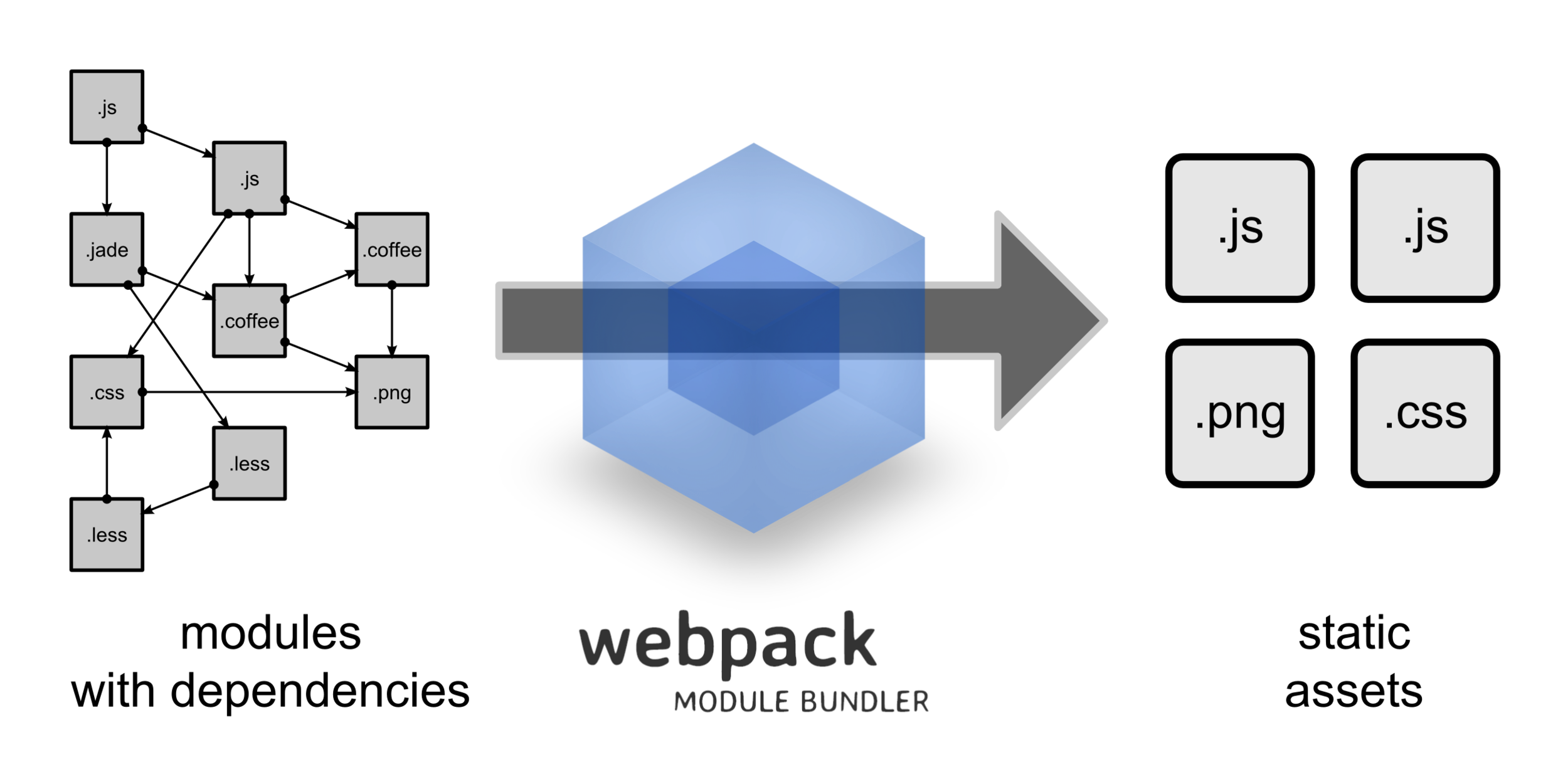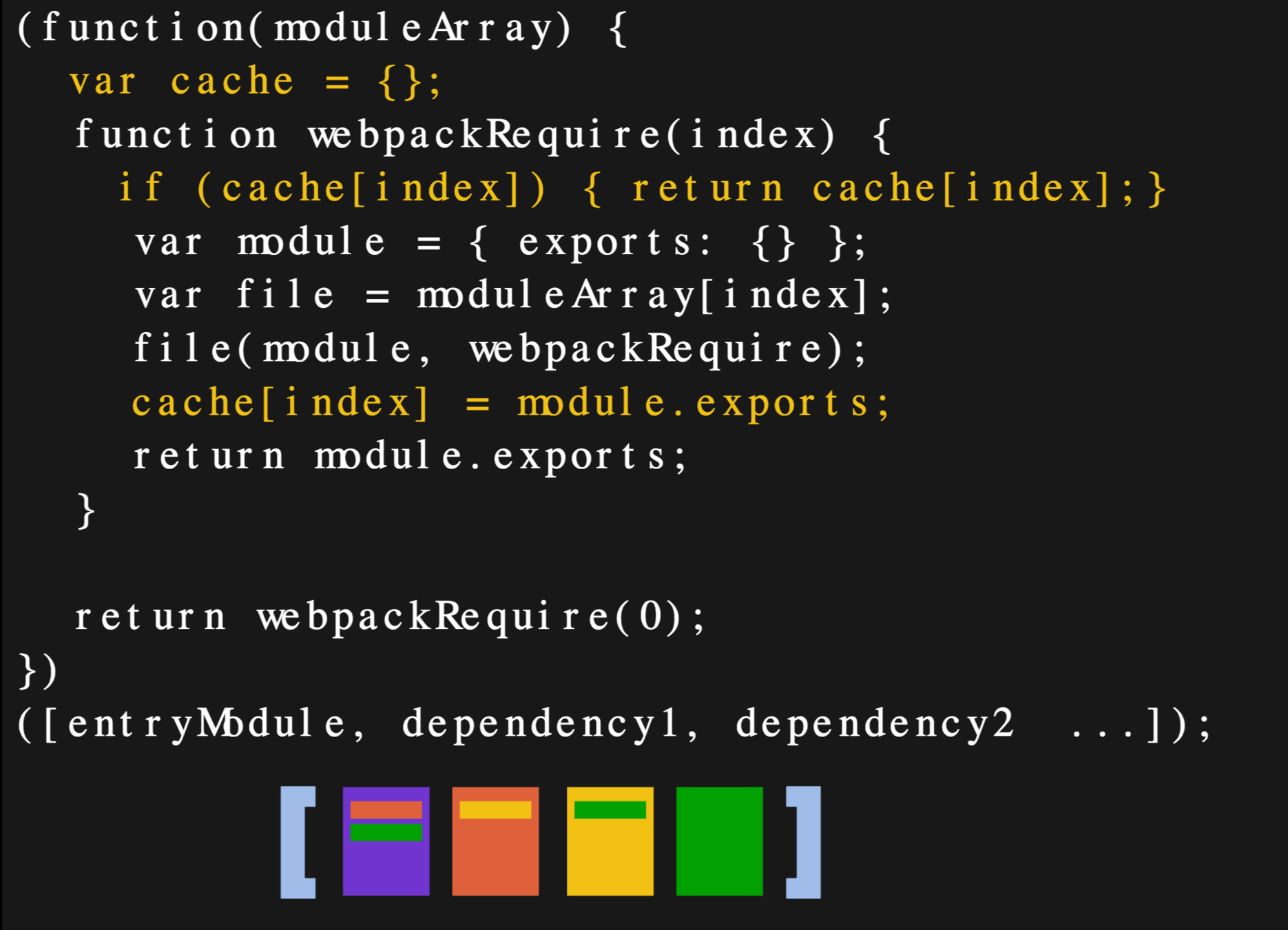Intro to Webpack2

What is Webpack?
- A manager for your front-end code
- Stuff that is nice for you to write => Stuff that is nice for your browser to read
- Module bundler for Javascript
- Compiler for Typescript/ES6/Sass/Less etc.
- Enables code-splitting
- Over a million downloads a week

How it works
- Starts with the entry files
- Follows the import/require chain
- Bundles the final build
But actually how does it work?

Loaders
- Customize your webpack
- Loaders apply transformations or perform operations on files of a given type
- HTML loader useful with Angular templates
- Less loader converts Less to CSS
- Built in + custom-made + NPM
- Can be chained, applied to files via regex, excluded from files

Plugins
-
Plugins install custom functionality at any point in the webpack process
- DLL plugin lets you create separate webpack bundles that reference each other
- CommonsChunkPlugin creates a cache of vendor files
Hot Module Replacement
- Allows updated application code to be injected into the application without requiring the browser to be refreshed
- Updates when you save a file
- For development stage only, requires webpack-dev-server
- Uses WebSocket to alert the page of changes and updates DOM without refresh
- "start": "webpack-dev-server --inline --hot"
What's new in Webpack2?
- More ES6 support
- understands import and export
- Better performance, improved bundling
- Performance budgets
- highlights bundles that exceed 250kb
- Treeshaking
Tree Shaking
- Dead code elimination
- Removes code that is not actually used/imported
- Smaller bundles => happier web app

var path = require('path');
module.exports = {
entry: './assets/js/index.js',
output: {
filename: 'bundle.js',
path: path.resolve(__dirname, 'dist')
},
// Add the JSHint loader
module: {
rules: [{
test: /\.js$/, // Run the loader on all .js files
exclude: /node_modules/, // ignore all files in the node_modules folder
use: 'jshint-loader'
},
{
test: /\.css$/,
use: [ 'style-loader', 'css-loader?modules', ],
}]
},
plugins: [
// enable HMR globally
new webpack.HotModuleReplacementPlugin(),
//automatically turn vendor files into cached chunk
new webpack.optimize.CommonsChunkPlugin({
name: 'commons',
filename: 'commons.js'
})
],
devtool: 'inline-source-map',
};Meet the competition
- Gulp
- Bazel
- Rollup
- RequireJS
- Browserify
- Grunt
Further reading/viewing
-
Webpack: It's Not Magic | Naomi Jacobs | BuzzJS
- https://www.youtube.com/watch?v=_QEM9kdV-b0
- Beginner's Guide to Webpack 2
- https://www.sitepoint.com/beginners-guide-to-webpack-2-and-module-bundling/
- Bullet Three
deck
By borisonr
deck
- 691



